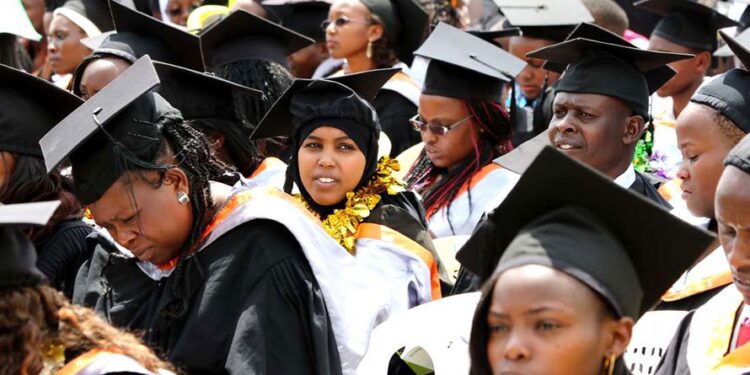Columnists
Overhaul university curriculum
Wednesday, June 5, 2019 20:32
By BITANGE NDEMO

Former US President Barack Obama once said: “Change will not come if we wait for some other person or some other time. We are the ones we’ve been waiting for. We are the change that we seek.”
Our failure to change university curricula as the Fourth Industrial (4IR) Revolution beckons is tantamount to burying our heads in the sand.
At the 5th Partnership for Skills in Applied Sciences, Engineering and Technology (PASET) forum two weeks ago in Kigali,Rwanda, it became clear that our university programmes need change if we want to be competitive in the era of 4IR.
PASET was set up five years ago as a platform “to discuss approaches, strategies and potential models to adapt education and training ecosystems to respond to the opportunities, challenges and risks of the 4IR and digital economy.”
Africa’s approach to education necessary for 4IR is wanting. Yet the nature of work is changing. Unlike in the past when a first degree could guarantee you 30 years of working in the same profession, a student graduating today will change jobs more than 15 times in the same period.
Dr. Elias Towe, a professor of Engineering at Carnegie Melon University, said at the forum that students today need flexible programs that can enable them to change in an increasingly dynamic technological work place.
Prof Towe noted for example, that while African engineering programs take 10 semesters to complete, it takes eight semesters in the US and most of Asia to complete similar degrees.
There are too many unnecessary additions to African engineering programs that do not add value. Other parts of the world have defined outcomes derived from the needs of the country. The university then sets goals along national aspirations. These are then cascaded to the department level where specific objectives define the curriculum.
More often than not where such objectives are set, the students finish their programs with a project that specifically deals with a real-world problem and offers flexibility to code, collaborate and interact with the real world as well as undertaking multidisciplinary courses from the humanities as a strategy to build the student’s soft skills.
These important additions are absent in African universities making what they want to achieve fuzzy. Presenting at the same forum, Chao Chen, general manager, State Grid Corporation of China, Ethiopia Branch, said in addition to completion of the academic degree, graduating students go to an equivalent of Technical and Vocational Education and Training (TVET) to sharpen their practical skills on the job before they are deployed or promoted.
As a result, the corporation becomes efficient to the extent that cost benefit is passed on to the consumer. Kenya Power and Lighting used to have such facilities for training engineers. At some point this was abandoned. Today, blackouts are the order of the day. Our pedagogical methods also came under scrutiny. Whilst most presenters emphasized teaching students to learn how to learn, African universities focus on assessment largely based on final exams.
Sometimes the curriculum is so wrong that no one can guarantee that the exams can assure the fitness of purpose of the learning outcomes we seek to achieve in many of our programs.
This indictment comes on the heels of Education Cabinet Secretary George Magoha urging universities to consider courses that they are offering to avoid duplication. He was asking the vice-chancellors to encourage some creativity in selection of their programmes bearing in mind that there are national aspirations that must be addressed.
Universities must be at the forefront in linking Vision 2030 or the Sustainable Development Goals to the programmes that they offer.
In my view, universities should begin with the problem in mind before designing new programmes instead of copying and pasting. For example, we should seek to solve the problem of water then design an engineering programme to deal with water problems now and in the days to come. Why do we give priority to mechanical engineering when we have no water? Food for thought if we need to deal with our future problems including 4IR.
Kenyan Business Feed is the top Kenyan Business Blog. We share news from Kenya and across the region. To contact us with any alert, please email us to [email protected]











